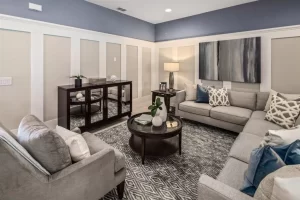In this article, we’ll break down proven strategies to skyrocket your ROAS (Return on Ad Spend) on the most powerful advertising platforms: Google Ads and Meta (Facebook and Instagram Ads). Our goal is to ensure every dollar you invest generates the maximum possible return.
Understanding ROAS in the Hotel Context
ROAS is a crucial metric that tells us how much revenue we’re generating for every dollar we spend on advertising. If you invest $1,000 and generate $5,000 in booking revenue, your ROAS is 5:1 or 500%. In the hotel sector, where margins can be tight and competition fierce, a high ROAS isn’t a luxury; it’s a necessity for survival and growth.
For hotels, a good ROAS typically ranges between 4:1 and 8:1, depending on the campaign type, hotel, location, and season. If your ROAS is below 3:1, it’s a clear signal that you urgently need to optimize your campaigns. Our objective will always be to maximize direct bookings to reduce reliance on OTAs and improve profitability.
Key Strategies for Google Ads: Capturing Booking Intent
Google Ads is fundamental for hotels because it allows you to capture users at the exact moment they are actively searching for a place to stay. Search intent is high, which translates into high ROAS potential.
1. Keyword Research and Optimization
- Long-tail keywords: These are your best friend for a high ROAS. Instead of bidding on “hotel Barcelona,” focus on “hotel with pool in Barcelona near Sagrada Familia” or “family hotel Barcelona city center with breakfast.” These searches have lower volume, but the intent is much higher, and competition is lower, resulting in cheaper clicks and a superior ROAS.
- Negative keywords: Just as important as positive ones. Add terms you know aren’t relevant to you (e.g., “hotel jobs,” “free hotel,” “hotel photos” if you’re not looking for downloads). This prevents irrelevant clicks that only consume your budget.
- Match types: Use a smart combination of exact and phrase match. Broad match (without modifiers) can attract too much irrelevant traffic and dilute your ROAS. Prioritize exact match for your highest-value, best-performing keywords.
2. Campaign and Ad Group Structure
- Highly specific ad groups (SKAGs or Single Keyword Ad Groups, or very narrow themes): Group very similar keywords and create hyper-relevant ads for them. If an ad group is about “romantic hotel Madrid city center,” the ad should talk about candlelight dinners, couple’s packages, etc. This improves Quality Score, reduces CPC, and increases ROAS.
- Campaigns by service/room type: Create separate campaigns for “luxury rooms,” “event halls,” “restaurant,” “special offers,” etc. This allows for specific budget allocation and optimization for each segment of your offering.
3. Ad and Extension Optimization
- Compelling and relevant ad copy: Highlight your Unique Selling Propositions (USPs): “Breakfast included,” “Free cancellation,” “Ocean views,” “Best price guarantee,” “Pet-friendly,” etc. Include a clear Call to Action (CTA): “Book now,” “View offers,” “Learn more.”
- Ad extensions: Essential! Use all relevant extensions:
- Sitelinks: For key pages (rooms, services, gallery, contact).
- Structured snippets: Highlight your amenities (pool, spa, gym).
- Callout extensions: Emphasize benefits (free Wi-Fi, express check-in).
- Call extensions: Allow users to call you directly from the ad.
- Price extensions: Directly show the price of your rooms or packages.
- Promotion extensions: For special offers or discounts.
Extensions increase your ad’s visibility and CTR, improving Quality Score.
- Sitelinks: For key pages (rooms, services, gallery, contact).
4. Smart Bidding Strategies
- Target ROAS: Once you have enough conversions, this bidding strategy is ideal. You tell Google the ROAS you want to achieve (e.g., 400%), and the system automatically adjusts bids to get closer to that goal. It’s crucial to have a good conversion history for it to work well.
- Maximize Conversions/Conversion Value: If you’re starting out or have less conversion data, these strategies can be a good starting point for Google to optimize for the highest number or value of conversions possible within your budget.
- Bid adjustments: Adjust your bids based on device (mobile vs. desktop), users’ geographical location, time of day, or day of the week. For example, if you see that mobile bookings are more profitable, increase mobile bids.
5. Google Hotel Ads: Your Best Ally for Direct Bookings
- Mandatory presence: Google Hotel Ads integrates your direct rates with those of OTAs in Google search results and Google Maps. Being there is crucial to compete for direct bookings.
- Price competitiveness: Ensure your direct prices are competitive. Google prioritizes the cheapest and most reliable option. A good strategy is to offer a small extra or an exclusive package on your direct website to justify the same price or a slightly higher one.
- Connection to your booking engine: Make sure your booking engine is well-connected and that price and availability information syncs correctly and in real-time.
Key Strategies for Meta Ads (Facebook & Instagram): Creating Demand and Loyalty
Meta Ads, with Facebook and Instagram, is excellent for the inspiration phase, for creating demand, and for retargeting. Although the initial ROAS may be lower than in Google Ads, its ability to build brand and nurture leads is unmatched.
1. Detailed Audience Segmentation
- Custom Audiences: Upload your customer databases (email, phone) to create remarketing audiences or to find “lookalike audiences.”
- Advanced Retargeting: Target ads to users who visited your website but didn’t book, or who viewed specific rooms. Offer them a discount or an exclusive benefit.
- Lookalike Audiences: Create audiences based on your most valuable customers. Meta will find users with similar behaviors and interests, increasing conversion chances.
- Interests and Behaviors: Segment by interests related to travel, luxury hotels, tourism, gastronomy, events, etc. Be as specific as possible.
2. Impactful Visual Creatives and Videos
- Visual quality: Instagram and Facebook are visual platforms. Invest in high-quality photos and videos of your hotel, rooms, amenities, and surroundings. Show the experience, not just the physical space.
- Video Marketing: Videos work very well for storytelling, showing virtual room tours, or highlighting your hotel’s atmosphere. Short, dynamic videos are key.
- Carousels and collections: Use carousel formats to showcase multiple rooms or services, or collections to simulate an in-app shopping experience.
3. Clear and Direct Calls to Action
- CTA buttons: Use buttons like “Book Now,” “Learn More,” “Check Availability.”
- Limited-time offers and urgency: Create a sense of urgency with limited-time offers or reduced availability.
4. Conversion- and Value-Oriented Campaigns
- “Conversions” campaign objective: Set up your campaigns with the conversions objective, optimizing for the “booking completed” or “checkout initiated” event.
- Value optimization: Meta Ads allows you to optimize for conversion value, similar to Google Ads’ Target ROAS. This lets you bid more for users who are likely to generate higher-value bookings.
- Cost per result: Closely monitor your cost per booking or per checkout initiation to ensure you’re getting a profitable return.
5. Meta Pixel Integration and Custom Events
- Meta Pixel: Ensure the Meta Pixel is correctly installed on all pages of your website and booking engine. This is fundamental for conversion tracking, retargeting, and creating custom audiences.
- Custom events: Set up custom events for key actions beyond booking, such as “specific room page view,” “book button click,” “payment initiation,” etc. This gives you more granularity to optimize your campaigns.
Cross-Platform Elements to Boost ROAS
Some factors affect ROAS regardless of the advertising platform you use.
1. Website and Booking Engine Optimization
- Load speed: A slow site causes users to abandon. Use tools like Google PageSpeed Insights.
- Responsive design: Ensure your site and booking engine look and function perfectly on any device, especially mobile.
- User experience (UX): The booking process should be intuitive, with few clicks and clear.
- High-quality images and videos: Showcase your hotel in the best possible light.
- Security (HTTPS): Essential for user trust and SEO.
2. Competitive Pricing and Transparency
- Rate parity: If you can’t offer a lower price than OTAs, at least offer parity and an extra incentive to book direct (free breakfast, late check-out, etc.).
- No hidden fees: Be transparent with prices and taxes. Unexpected costs at checkout are a major abandonment factor.
3. Online Reputation Management
- Positive reviews: Encourage guests to leave reviews on Google My Business, TripAdvisor, Booking.com. Good reviews build trust and increase conversion rates.
- Respond to all reviews: Show that you care about the customer experience.
4. Accurate Conversion Tracking
- Google Analytics and Google Ads: Correctly set up conversion tracking in Google Ads for each booking type and in Google Analytics for a holistic view of user behavior.
- Meta Pixel: Ensure the pixel is well-implemented and recording all important events.
- Attribution: Understand which channels and touchpoints contribute to the booking. It’s not all about the “last click.”
5. A/B Testing and Continuous Optimization
- Experiment constantly: Test different creatives, ad copy, audience segmentations, offers, and bidding strategies.
- Analyze data: Regularly review your Google Ads and Meta Business Manager reports. Identify what works, what doesn’t, and where there are opportunities for improvement. ROAS isn’t optimized once and then forgotten; it’s a continuous process.
Improving ROAS in Google Ads and Meta for your hotel isn’t magic; it’s the consistent application of data-driven, intelligent strategies. It requires a deep understanding of your customers, an optimized website, compelling ads, and meticulous campaign management. By implementing these tactics, your hotel will not only increase its online visibility but transform that visibility into a steady stream of direct bookings and, more importantly, into greater profitability.
Contact us at Digisap, and let’s design together an SEO and digital marketing strategy so your hotel is the first choice, and guests book with you, not the competition.
Click here to schedule your free consultation and take your hotel to the next level





